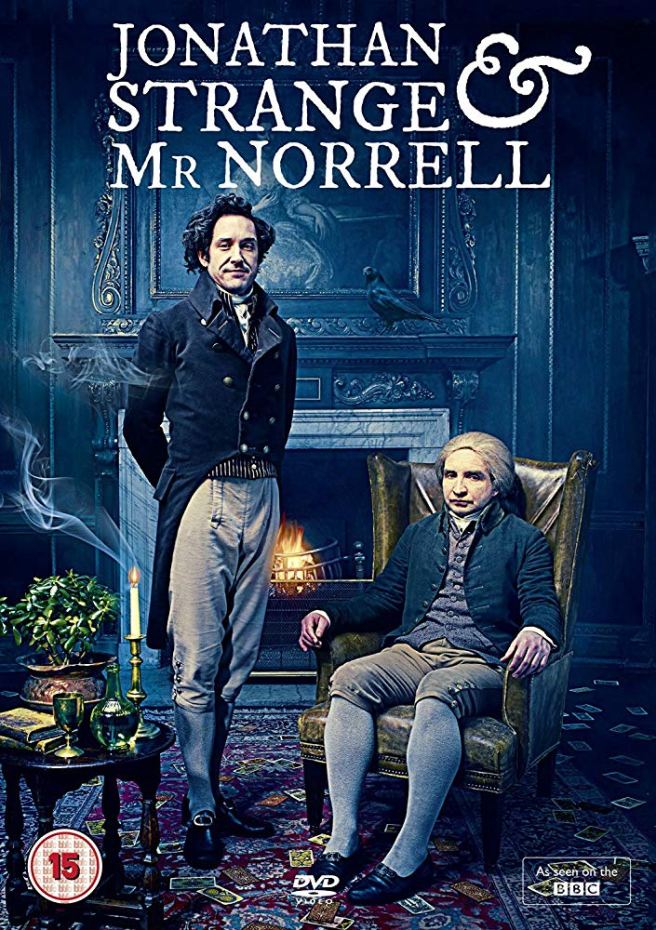In the realm of contemporary fantasy literature, few tales possess the singular charm and intricate layering of Susanna Clarke’s “Jonathan Strange and Mr Norrell.” This magnum opus stands as a paragon for those who revel in the exquisite interplay of magic, history, and meticulous world-building. It’s not merely a story about two magicians; it is a profound exploration of ambition, power dynamics, and the varied manifestations of human desire.
At its core, the narrative unfolds during an alternate version of early 19th century England, amidst the tumultuous backdrop of the Napoleonic Wars. Clarke’s deft inclusion of historical events and figures lends a palpable authenticity to a world that, while steeped in magic, resonates deeply with the socio-political tensions of the time. This setting becomes a fertile ground for exploring larger themes, such as the nature of English nationalism and the often fraught relationship between tradition and innovation.
Jonathan Strange, a burgeoning magician, is ambitious and filled with the zealous fervor that accompanies youth. In contrast, Mr. Norrell embodies the archetypal scholar—meticulous, reserved, and somewhat timid. The juxtaposition of their personalities creates a dynamic tension that propels the narrative forward. Their initial alliance is forged out of mutual benefit; Norrell seeks to revive English magic, while Strange desires to navigate the chaotic world as a competent magician. However, this camaraderie soon deteriorates, revealing deeper fissures in their characters and motivations.
A recurring theme throughout the novel is that of control versus chaos. Mr. Norrell represents the conservative approach to magic, wherein he seeks to regularize and codify the art’s practices, striving for mastery over the arcane. In stark contrast, Jonathan Strange embodies the chaotic nature of creativity, tending to embrace the unpredictable elements of magic. This clash not only serves as a catalyst for the plot but also invites readers to ponder the broader implications of authority and freedom. Clarke deftly illustrates that true power is nuanced and inherently unstable, often manifesting in unexpected ways.
One cannot overlook the enchanting yet perilous allure of magic throughout the narrative. It operates not merely as a tool for spectacle but as a complex entity laden with consequences. The enigmatic Raven King serves as a haunting reminder that magic, when untethered from ethical considerations, can lead to dark outcomes. Clarke employs this dark persona to underscore the notion that not all endeavors in the realm of the fantastical can end in triumph. The specter of loss lurks in every corner, accompanied by the realization that the pursuit of knowledge often comes with a steep price.
As the story progresses, we witness the evolving relationship between Strange and Norrell. Their rivalry escalates, resulting in tragic consequences that ripple throughout the lives of those around them. The once deep bonds formed in the crucible of shared ambition fray under the weight of jealousy, ambition, and a thirst for recognition. Their contrasting philosophies on the use of magic ultimately serve as a microcosm for the human experience, illustrating how the thirst for power can corrupt even the purest intentions.
Moreover, Clarke’s use of language is a noteworthy feature of the novel. Her prose intermingles the archaic with the contemporary, crafting an atmosphere that feels both ethereal and deeply rooted in reality. The rich descriptions, laced with wit and irony, evoke a sense of nostalgia while simultaneously skewering the mores of the era. This linguistic style echoes the works of Jane Austen, a notable influence on Clarke. This connection signifies not merely a shared cultural backdrop but also underscores the thematic exploration of societal expectations and individual desires.
Interestingly, the novel engages with the concept of storytelling itself. The presence of footnotes throughout the text—often elaborating on historical references or introducing amusing sidestories—serves to enrich the narrative. This metatextual element invites readers to reflect on the act of storytelling: who gets to tell the story and what voices remain marginalized. It underscores the importance of narrative in shaping our understanding of history and identity; a poignant reminder that history is often written by the victors.
The themes of ambition and rivalry culminate in a crescendo that feels both inevitable and tragic. The choices made by both characters resonate within the reader, eliciting not only empathy but also a discomforting reflection on one’s own ambitions and ethical boundaries. As the story wends its way to a riveting conclusion, one is left to grapple with the question of whether the pursuit of greatness is worth the cost it often demands.
In closing, “Jonathan Strange and Mr Norrell” transcends the conventional bounds of fantasy literature. It delivers a nuanced exploration of power and ambition while simultaneously offering a profound commentary on the human condition. Clarke’s masterful blend of historical richness, intricate characterizations, and thematic depth ensures that the narrative lingers long after the final page is turned. Those drawn to the allure of magic and the complexities of human relationships will find themselves ensnared in this enchanting tale, compelled to ponder: what are we willing to sacrifice for mastery over our own destinies?
